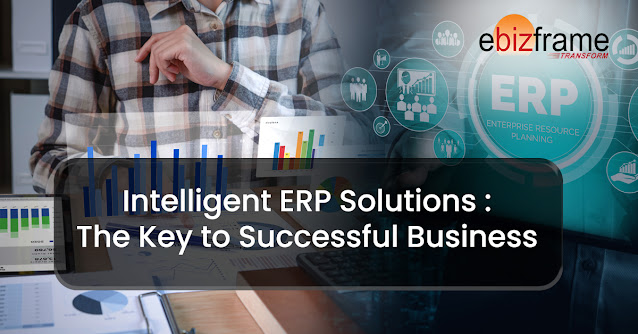Food and Beverage ERP: Navigating dynamic landscape in 2024
The food and beverage industry is a constantly evolving landscape. This year is no different, with businesses facing challenges like labor shortages, climate change, and ongoing supply chain disruptions. To stay ahead of the curve, companies need to embrace technological advancements, particularly by implementing a robust Food and Beverage ERP system. This can help them overcome these hurdles and adapt to changing consumer preferences.
This blog explores some key trends and predictions for the food and beverage industry in 2024, highlighting how a Food and Beverage ERP can be a valuable tool in navigating this dynamic environment.
1. Technology is the Solution
Technology offers a wealth of opportunities for the food and beverage sector. From streamlining supply chains and addressing labor shortages to developing sustainable products, advancements like Artificial Intelligence (AI), Machine Learning (ML), and Robotic Process Automation (RPA) can significantly impact profitability.
Cloud-based solutions make these technologies readily available and easily implemented in a Food and Beverage ERP system. allows businesses to remain agile and responsive to sudden shifts in consumer demand. Cloud platforms offer vast resources, enabling companies to scale up quickly during periods of high demand. Additionally, the cloud fosters innovation, and businesses that experiment with AI and ML algorithms can gain a significant competitive edge.
2. Leveraging Data for Success
Data analytics plays a crucial role in optimizing business operations within a Food and Beverage ERP. By analyzing vast datasets, including past purchases, preferences, and real-time interactions, companies can understand consumer behavior and provide personalized recommendations.
Furthermore, big data and predictive analytics empower businesses to anticipate and prevent potential issues within the manufacturing process or supply chain. This includes foreseeing equipment failure, enhancing food safety processes, and improving energy usage for maximized efficiency and minimized downtime – all of which can be managed effectively through a robust Food and Beverage ERP.
3. Transparency and Traceability Take Center Stage
Consumer demand for transparency and traceability in food products will continue to rise. As environmental concerns gain traction, people are becoming more conscious of the impact of their choices. They seek information about the origin, quality, and sustainability practices behind the food and beverages they buy.
Effective traceability and transparency systems can highlight a company's commitment to ethical sourcing and sustainable practices, attracting environmentally conscious consumers. Additionally, regulations like the FSMA final rule on traceability records emphasize the importance of robust tracking throughout the supply chain. This ensures faster identification and removal of potentially unsafe food, minimizing health risks – functionalities that are built into leading Food and Beverage ERP systems.
4. Automation to Address Worker Shortages
The ongoing worker shortage will necessitate greater automation in the food and beverage industry. The key lies in strategically deploying technology to automate suitable manual tasks within a Food and Beverage ERP system. RPA can be particularly helpful in addressing workforce shortages by automating mundane and repetitive tasks. For instance, RPA can monitor stock levels and automatically place orders when necessary, enhancing accuracy, efficiency, and productivity, especially when dealing with perishable products.
Creating engaging work environments is also essential to attract and retain top talent, particularly among younger generations. This includes providing user-friendly applications within the Food and Beverage ERP and fostering opportunities to continuously improve processes.
5. Sustainability Remains a Priority
Emerging Technologies to Watch
- AI and ML: AI and ML can analyze real-time data to predict outcomes and provide data-driven recommendations for enhanced supply chain efficiency. They can also help control inventory levels, monitor shipments, and maintain real-time supply chain visibility, enabling proactive responses to disruptions or quality issues. Additionally, AI and ML are crucial for carbon tracking, decarbonization efforts, and energy optimization.
- RPA: RPA automates repetitive tasks such as data entry, document management, and information gathering, minimizing human error and boosting productivity. It can also optimize resource usage and minimize waste.
- Blockchain: Blockchain technology provides secure, transparent, and tamper-proof recording of transactions. This makes it ideal for traceability systems, allowing consumers to access detailed information about a product's origin, quality, and safety. Blockchain can also track and verify a company's environmental impact, creating a trustworthy record of sustainable practices.
Strategies for Embracing Technological Advancements
- Identify Business Needs: Focus on areas within your operations that can benefit from innovation. This ensures a more targeted and effective technology implementation.
- Leverage Data for Insights: Utilize data analytics, AI, and ML to glean valuable insights for streamlining production, optimizing supply chains, and improving customer experiences.
- Pilot Programs: Implement emerging technologies through pilot programs to test their effectiveness before large-scale adoption.
By embracing these trends and implementing the right technologies, food and beverage businesses can navigate the dynamic landscape of 2024 and achieve sustainable success. Food and Beverage ERP empowers your business with the tools and insights needed to adapt to evolving consumer preferences, ensure regulatory compliance, and build a resilient and sustainable supply chain.
Is your food and beverage business ready to thrive in the dynamic landscape of 2024? Contact us today at marketing@ebizframe.com marketing@ebizframe.com or visit us at www.ebizframe.com to learn more about how a Food and Beverage ERP system can help you overcome challenges, seize opportunities, and achieve long-term success.




Comments
Post a Comment